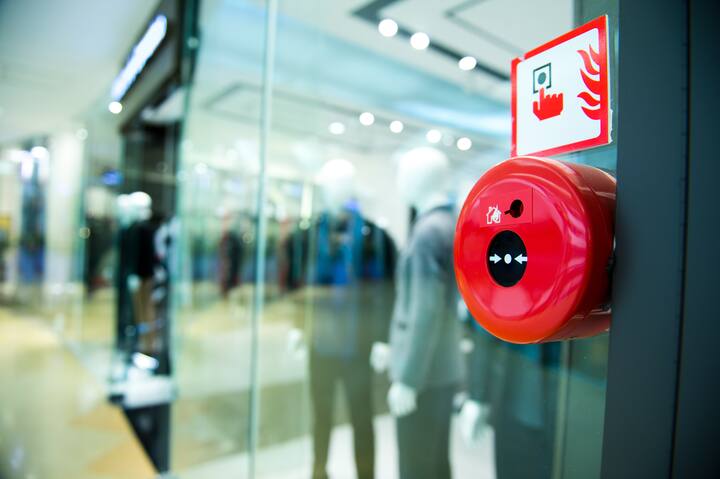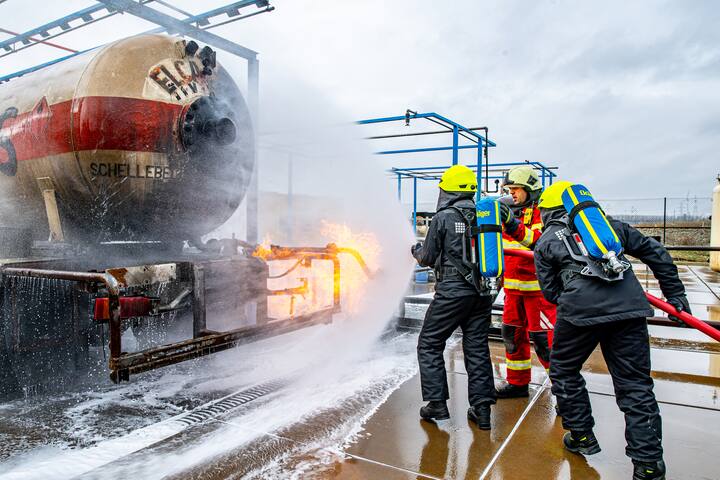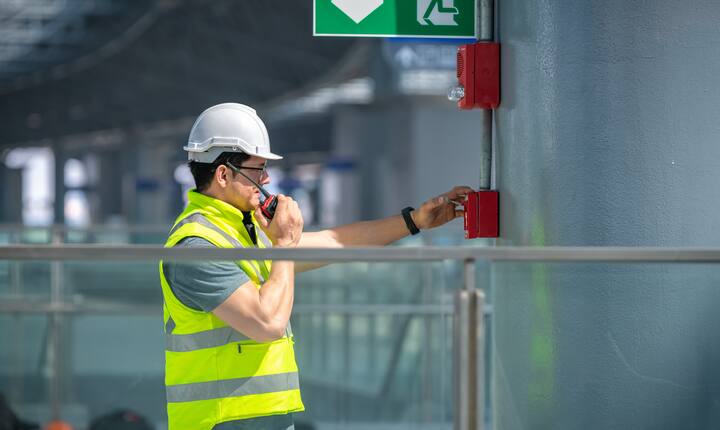
NEWS
Reporting a Fire in a Building
5 Frequently Asked Questions About Fire Detection Systems
1. What Is a Fire Detection System?
As the name suggests, a fire detection system is designed to detect a fire in a building quickly, allowing for immediate action. It can activate the evacuation alarm system, elevators, or fire suppression systems.
The function of an automatic fire detection system is to detect the early stages of a fire as soon as possible. Once detected, the linked evacuation alarm system alerts building occupants through visual and audible signals to evacuate.
Fire detection systems can also be connected to a central alarm station or directly to the fire department for rapid response. In some cases, they are integrated with a fire suppression system (e.g., sprinklers) to contain or even prevent the spread of fire and smoke.
2. When Is a Fire Detection System Mandatory?
A fire detection system is required in certain situations under the 2012 Dutch Building Decree (Bouwbesluit 2012). A table (Table 1) outlines, by building function, whether a system is required, the level of coverage, and whether a valid inspection certificate is needed.
In general: a fire detection system is mandatory if occupants of the building need assistance to evacuate safely.
3. Why Is a Fire Detection System Important?
The primary reason: it saves lives. In the event of a fire, every second counts. A reliable fire detection system ensures a quick response by detecting the fire early and triggering automatic emergency actions.
For building owners and insurers, it’s also critical to limit the extent of damage. Naturally, everyone wants a fire to be brought under control before it becomes devastating.
4. Who Is Responsible for the System?
Responsibility is defined in the certification schemes for fire detection systems:
The client (usually the building owner) is responsible for fire safety within the building, including the Program of Requirements, the fire detection system, and hiring the fire detection and maintenance companies.
The fire detection company is responsible for the design and delivery of the fire detection system, including outgoing connections from the control panel.
The maintenance company is responsible for maintaining the system, up to the outgoing connections of the control panel.
The installation company handles the physical installation, usually commissioned by the fire detection company or another client.
The certification body assesses whether the fire detection, installation, and maintenance companies meet the required standards and issue certificates or attestations accordingly.
5. Why Is Certification So Important?
Anyone who owns or occupies a building wants to be confident that the fire detection system is reliable and will function when it truly matters.
While a maintenance company only checks the technical performance of the system, a Normec FSS inspector assesses the complete picture:
Do all systems work together properly?
Are the structural fire safety provisions in order?
Are the organizational fire safety measures sufficient?
This comprehensive approach offers greater assurance that the fire safety system will perform in real-life situations. Annual inspections help further reduce risks.
During the inspection, the system, its associated building features, and organizational measures are reviewed. When all aspects are found to be in order, an inspection certificate is issued—confirming the building meets fire safety standards.
Gerelateerde artikelen

6 Apr 2025
Fire station destroyed due to missing fire alarm
In the German town of Stadtallendorf, a fire station was completely destroyed by a fire. The blaze spread unchecked because part of the station—only opened in January—had no sprinkler system or fire alarm. The damage is estimated at a minimum of 20 million euros.
The fire broke out shortly after 4:00 a.m. One of the vehicles may have caught fire, according to regional broadcaster Hessenschau. Local authorities confirmed that no fire detectors or sprinklers were present in the part of the station where the fire started.

6 Apr 2025
Technical Bulletin 64-2024 on Foam Concentrate Proportioning Systems

6 Apr 2025
Euralarm publishes new guideline for gaseous fire suppression systems in data centers

15 Dec 2024
Non-sprinklered space intended for temporary use

2 Apr 2025
Importance of sprinkler systems highlighted by battery fire in Tilburg
More about Normec FSS

Normec FSS
's-Hertogenbosch Netherlands